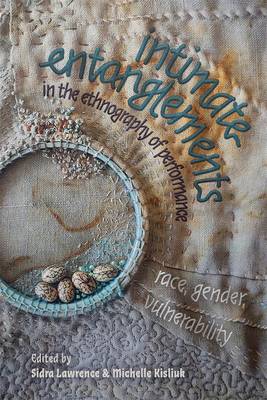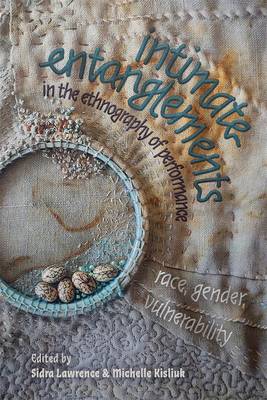
Door een staking bij bpost kan je online bestelling op dit moment iets langer onderweg zijn dan voorzien. Dringend iets nodig? Onze winkels ontvangen jou met open armen!
- Afhalen na 1 uur in een winkel met voorraad
- Gratis thuislevering in België vanaf € 30
- Ruim aanbod met 7 miljoen producten
Door een staking bij bpost kan je online bestelling op dit moment iets langer onderweg zijn dan voorzien. Dringend iets nodig? Onze winkels ontvangen jou met open armen!
- Afhalen na 1 uur in een winkel met voorraad
- Gratis thuislevering in België vanaf € 30
- Ruim aanbod met 7 miljoen producten
Zoeken
Intimate Entanglements in the Ethnography of Performance
Race, Gender, Vulnerability
€ 177,45
+ 354 punten
Omschrijving
Honourable Mention for Society for Ethnomusicology - Ellen Koskoff Edited Volume Prize Offers expansive and intersecting understandings of erotic subjectivity, intimacy, and trauma in performance ethnography and in institutional and disciplinary settings. Focused on research within Africa and the African diaspora, contributors to this volume think through the painful iterations of trauma, systemic racism, and the vestiges of colonial oppression as well as the processes of healing and emancipation that emerge from wounded states. Their chapters explore an acoustemology of intimacy, woman-centered eroticism generated through musical performance, desire and longing in ethnographic knowledge production, and listening as intimacy. On the other end of the spectrum, authors engage with and question the fetishization of race in jazz; examine conceptions of vulgarity and profanity in movement and dance-ethnography; and address pain, trauma, and violation, whether physical, spiritual, intellectual, or political. Authors in this volume strive toward empathetic, ethical, and creative ethnographic engagements that summon vulnerability and healing. They propose pathways to aesthetic, discursive transformation by reorienting conceptions of knowledge as emergent, performative, and sonically enabled. The resulting book explores sensory knowledge that is frequently left unacknowledged in ethnographic work, advancing conversations about performed sonic and somatic modalities through which we navigate our entanglements as engaged scholars.
Specificaties
Betrokkenen
- Uitgeverij:
Inhoud
- Aantal bladzijden:
- 268
- Taal:
- Engels
- Reeks:
- Reeksnummer:
- nr. 13
Eigenschappen
- Productcode (EAN):
- 9781648250637
- Verschijningsdatum:
- 18/04/2023
- Uitvoering:
- Hardcover
- Formaat:
- Genaaid
- Afmetingen:
- 152 mm x 229 mm
- Gewicht:
- 530 g

Alleen bij Standaard Boekhandel
+ 354 punten op je klantenkaart van Standaard Boekhandel
Beoordelingen
We publiceren alleen reviews die voldoen aan de voorwaarden voor reviews. Bekijk onze voorwaarden voor reviews.










